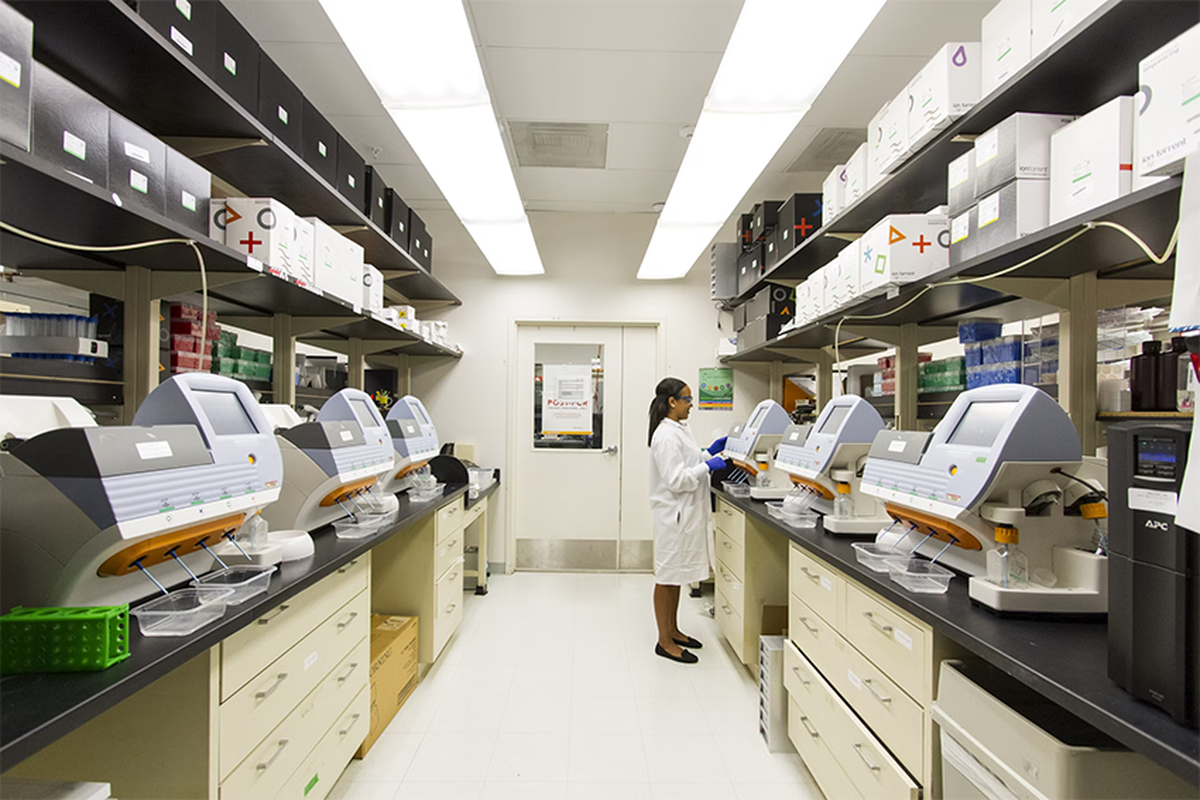30/11/2024
30/11/2024

Thymagen, a short peptide derived from the thymus gland, has gained interest in scientific research for its possible impact on immune modulation and cellular regeneration. Although its research implications are still under exploration, research suggests that Thymagen may play a role in the regulation of cellular processes that support immune system function, tissue repair, and overall cellular homeostasis. Due to its proposed impact on cellular signaling pathways, Thymagen has been theorized as a peptide of interest in regenerative biology, immunology, and age-associated cellular resilience. This article delves into the peptide's hypothetical mechanisms, examining its possible functions in cellular communication and repair, and explores emerging research directions in biotechnological contexts.
Introduction
Thymagen peptide is a naturally occurring peptide fragment associated with the thymus, an organ involved in the maturation of immune cells. Peptides derived from the thymus are studied for their roles in cellular processes related to immune modulation, tissue integrity, and response to external stressors. Thymagen, specifically, has drawn scientific attention for its potential to influence cellular signaling pathways that may support immune resilience and tissue regeneration.
This peptide's hypothesized roles suggest avenues for research in age-related degeneration, immune system decline, and even advanced regenerative science, where its mechanisms may offer insights into enhancing cellular resilience. However, rigorous investigation remains essential to clarify Thymagen's molecular impacts and their implications for their implications for diverse biological systems.
Biochemical Properties and Hypothetical Mechanisms
Thymagen is classified as a bioregulatory peptide, a group that theoretically supports natural cellular functions through targeted interactions with cellular components. Structurally, Thymagen consists of amino acid sequences thought to interact with specific cellular receptors or signaling pathways, potentially modulating gene expression and cellular repair mechanisms.
The peptide's interaction with intracellular signaling pathways may be one of its most critical hypothetical functions. Studies suggest that by influencing these pathways, Thymagen might modulate transcription factors or cellular proteins that are involved in immune cell activation and differentiation. Research indicates that the peptide might indirectly impact immune cell function by supporting T-cell activity. This property suggests Thymagen could hypothetically maintain a balanced immune response, particularly within laboratory specimens experiencing immune senescence, where immune system components lose their resilience over time.
Potential in Immunology Research
One area where Thymagen might offer promise is immunology, specifically in studying mechanisms related to immune resilience. Over time, the immune system gradually changes, a phenomenon often called "immunosenescence." This gradual weakening of immune responses has been linked to decreased thymic output, leading to lower T-cell production and compromised immune adaptability. Thymagen, given its origins in thymic biology, is theorized to have a unique impact on the immune system, potentially through the regulation of T-cell differentiation and maturation processes.
Speculative Role in Cellular Processes
Regenerative biology has also begun to examine peptides like Thymagen for their potential to influence cellular regeneration. Thymagen's possible impact on gene expression profiles linked to cellular growth suggests a theoretical application in tissue repair research. By possibly enhancing cellular communication and promoting the renewal of aged or damaged cells, Thymagen may be relevant for research aimed at addressing tissue resilience under physiological stress.
Hypothetical Applications in Age-Related Research
Thymagen has captured the interest of researchers investigating aging-related cellular decline due to its hypothesized influence on cellular maintenance mechanisms. Aging is marked by a gradual decrease in the organism's potential to repair and replace cells efficiently, leading to tissue vulnerability and functional degradation. Thymagen's impact on cellular pathways may hypothetically contribute to age-associated studies focused on maintaining cellular homeostasis and structural stability within tissues.
Research indicates in terms of potential research into cellular senescence, Thymagen may serve as an intriguing peptide for experiments aimed at reducing cellular aging markers. This could involve studying how Thymagen hypothetically influences pathways related to mitochondrial function or DNA repair, which are considered to deteriorate over time. While direct data is sparse, the peptide's theorized regulatory properties position it as an attractive candidate for understanding cell aging biology, especially in the context of preserving cellular function amidst age-related challenges.
Prospective Role in Environmental Stress Response Research
Peptides that support cellular functions are often studied for their potential roles in the context of environmental stress at the cellular level. Thymagen is theorized to aid cellular adaptability under various stress conditions, including oxidative stress, which can damage cellular proteins, lipids, and DNA. Thymagen's speculative role in modulating stress responses suggests it might be useful in studies examining cellular responses to oxidative and environmental challenges, such as UV radiation or pollutants.
Conclusion
Thymagen peptide represents a promising avenue for scientific exploration due to its theorized functions in immune modulation, cellular regeneration, and age-associated resilience. While definitive mechanisms are not yet fully understood, the peptide's origins in thymic biology make it a compelling candidate for studies across various scientific domains.
Future research may uncover more about how Thymagen influences intracellular signaling, cellular repair, and immune pathways, potentially contributing to biotechnological innovations in regenerative biology, immunology, and aging research. Given its proposed action, Thymagen may support advancements in understanding cellular processes that sustain organismal integrity amidst environmental and age-related challenges. Further exploration will be essential in verifying the potential pathways and applications of this peptide, guiding the direction of future biotechnological research. Scientists can find more studies here.
References
[i] Bonnema, D. D., & Rivest, R. W. (1999).* Thymosin peptides: Immunomodulatory effects and therapeutic potential**. Current Opinion in Investigational Drugs, 4(2), 134-141. https://doi.org/10.1016/S0952-7915(99)90037-5
[ii] Mocchegiani, E., Giacconi, R., & Cipriano, C. (2005). Thymic peptides, zinc, and aging: Interaction with interleukin-6 and immune system. Experimental Gerontology, 40(7), 647-657. https://doi.org/10.1016/j.exger.2005.07.001
[iii] Goldstein, A. L., & Badamchian, M. (2004). Thymosin alpha 1: Biological activities, applications, and new perspectives. Acta Biochimica Polonica, 51(3), 613-621. https://doi.org/10.18388/abp.2004_3862
[iv] Sarkar, S., & Fisher, P. B. (2006). Molecular mechanisms of aging-associated inflammation and cellular senescence. Experimental Gerontology, 41(5), 435-447. https://doi.org/10.1016/j.exger.2006.02.015
[v] Ventura, C., & Maioli, M. (2011). Protein and peptide growth factors in aging and disease. Cell Biochemistry and Function, 29(4), 251-264. https://doi.org/10.1002/cbf.1765


